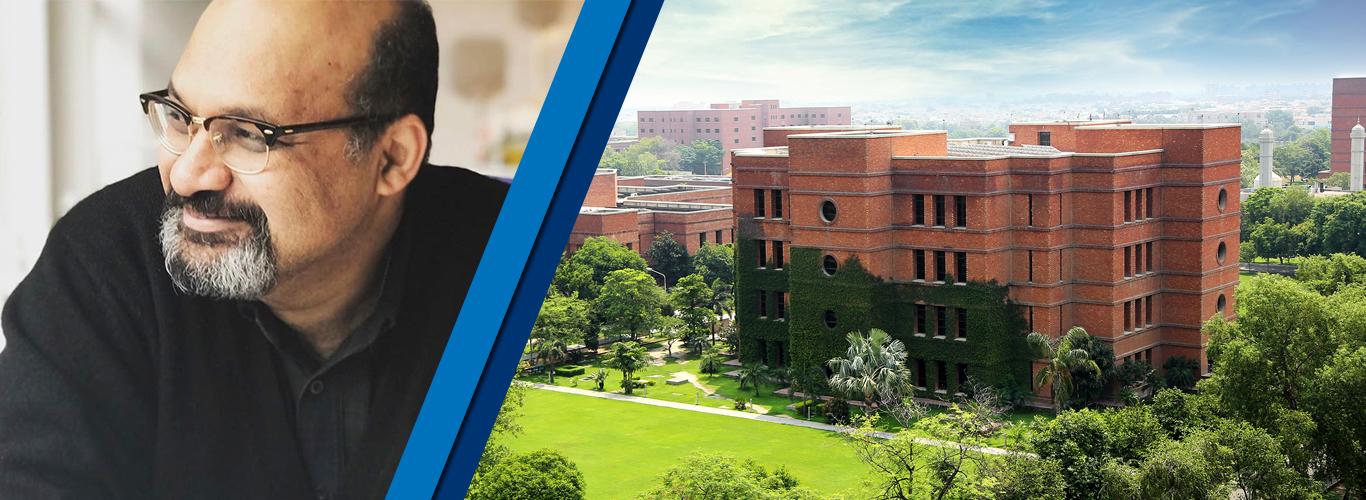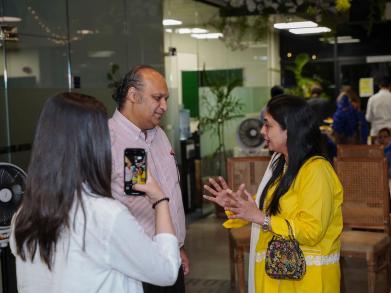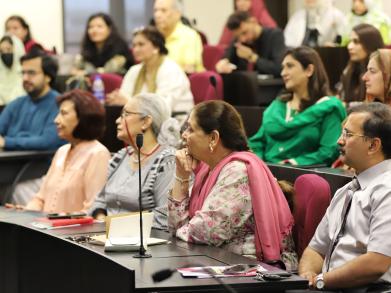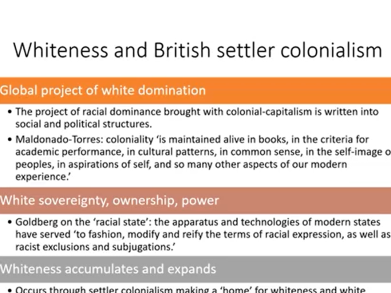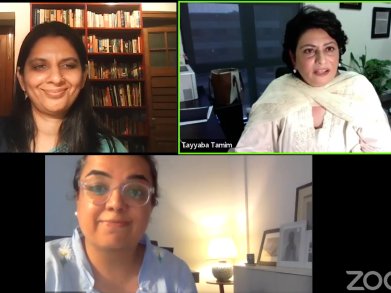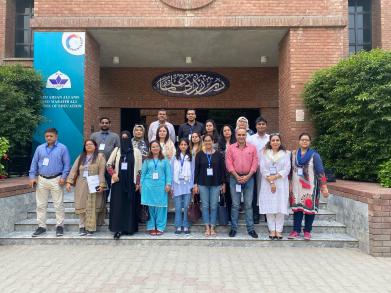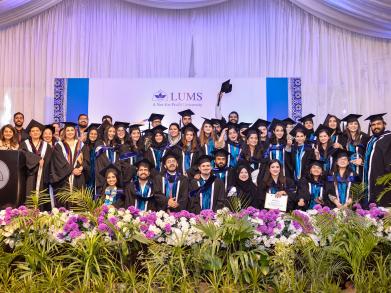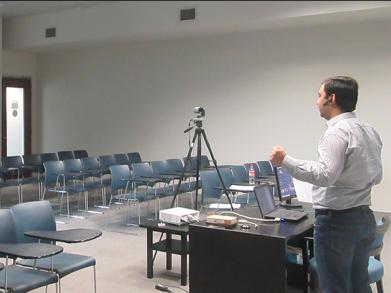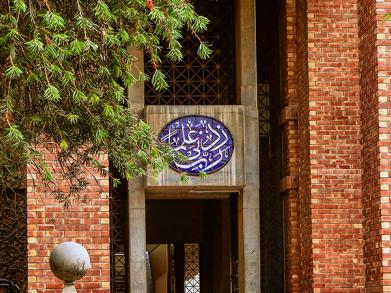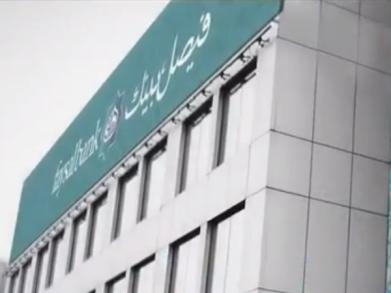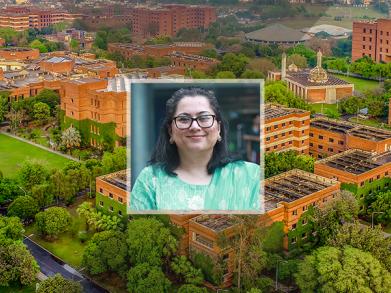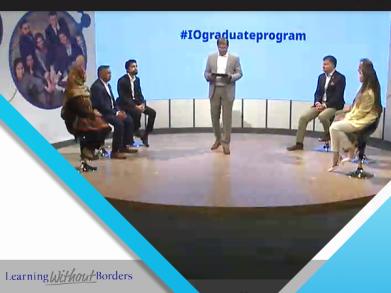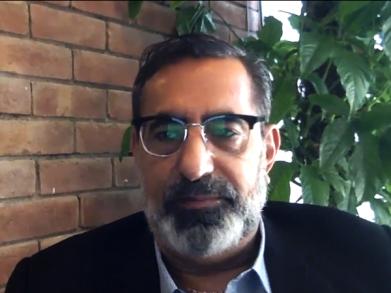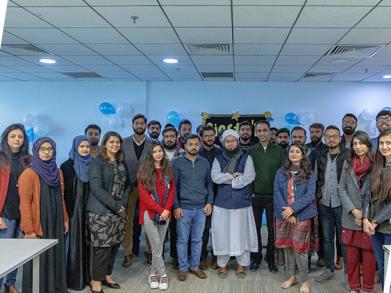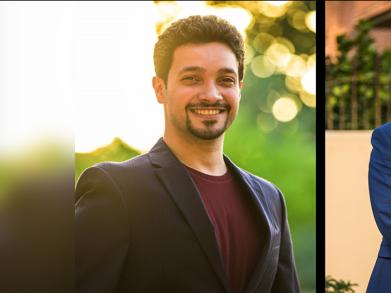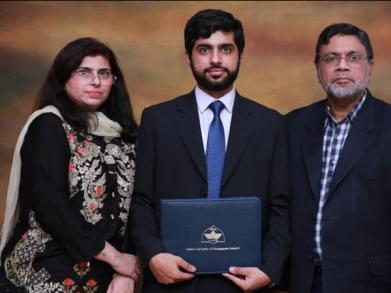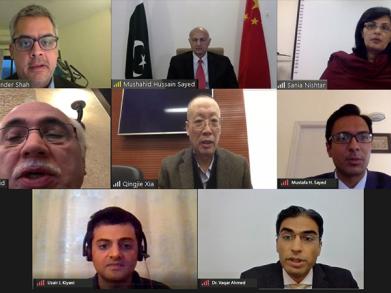LUMS School of Education Appoints Dr. Faisal Bari as Interim Dean
Established in 2017, Syed Ahsan Ali and Syed Maratib Ali School of Education (SOE) is the newest school at LUMS. The inaugural MPhil Education Leadership and Management (ELM) class has successfully graduated, the inaugural dean, Dr. Tahir Andrabi has recently completed his term, and the School is navigating its path forward.
At the helm of this new phase is Dr. Faisal Bari. He has recently been appointed as interim Dean for a one-year term, effective July 1, 2020. Apart from his roles as Associate Professor at SOE and the School of Humanities and Social Sciences, Dr. Bari has also served as the Director of Academic Programmes at SOE. He is also a Senior Research Fellow at Institute of Development and Economic Alternatives. His current teaching interests are in the areas of philosophy of education inclusion, economics of education, game theory, microeconomics and industrial organisation.
Although a young school, the LUMS School of Education has quickly developed a reputation for quality. During his tenure, Dr. Bari is excited to continue this ethos in all aspects of the School’s functions: from its existing programmes, research and training to any other future programmes that it may launch. He shares that SOE has the smallest faculty among the five schools at LUMS, and envisions growth in this area. He is also a firm proponent of encouraging faculty development in parallel to the School’s other goals.
Commenting on how the School’s future fits into the University’s no-borders agenda, he explains that the field of education is, by nature, transdisciplinary. The MPhil ELM programme itself is an example of this. Faculty members at SOE come from various backgrounds, including sociology, anthropology and economics. In fact, Dr. Bari’s dual role as Associate Professor at both SOE and the School of Humanities and Social Sciences is the first joint faculty appointment in the University’s history.
While talking about the way forward, he notes, “The first few years of SOE involved setting up the school. Now that our first ELM batch has graduated, we have to start thinking about expansion in various areas and fields.”
This expansion, he adds, can be classified into three domains. The first is the undergraduate level. Currently, the School offers a minor in Education. While moving forward, options may include establishing a major, or perhaps even a joint major.
The second domain is at the graduate level. Dr. Bari comments that typically schools of education around the world tend to be graduate programme centric. At the moment, SOE offers an MPhil programme, but this may expand in the coming years.
The third area to consider is the massive education sector in Pakistan. In Punjab alone, there are nearly 400,000 employed teachers in the public sector. There is room for a lot of professional training and development. SOE may have a role to play in the areas of executive teacher training and development for school systems, school leaders, teachers etc.
As LUMS, and indeed many universities around the world, have been forced to conduct classes virtually due to COVID-19, Dr. Bari believes it will be an important consideration for the School. He says, “Online education has come to us by default, and increasingly by design. We are currently in conditions of disequilibrium and must contextualise it and identify how to use it effectively.”
Dr. Bari notes that in the current context, leadership is more important than ever. He is quick to add that the definition of leadership is not restricted to the traditional notion of senior role holders in organisations. Rather, he believes that every person has to assume a leadership role for themselves and those around them.
For the incoming MPhil cohort, this distinction will be more important than ever before. He says, “COVID-19 has highlighted that we are embedded in webs of relationships and interactions. Our role as individuals is exceptionally important if the network is going to work well. We will all have to rise to the occasion and exhibit leadership – be it in your household, community or workgroup. This will form the basis of educational reform and has the power to shape communities.”




